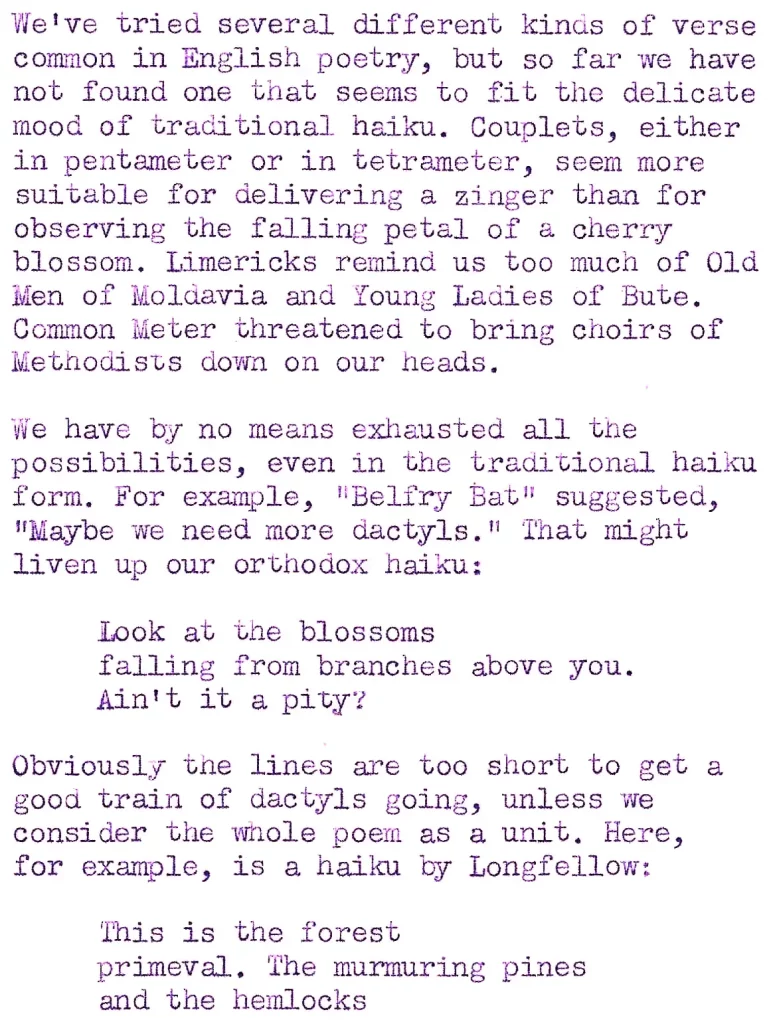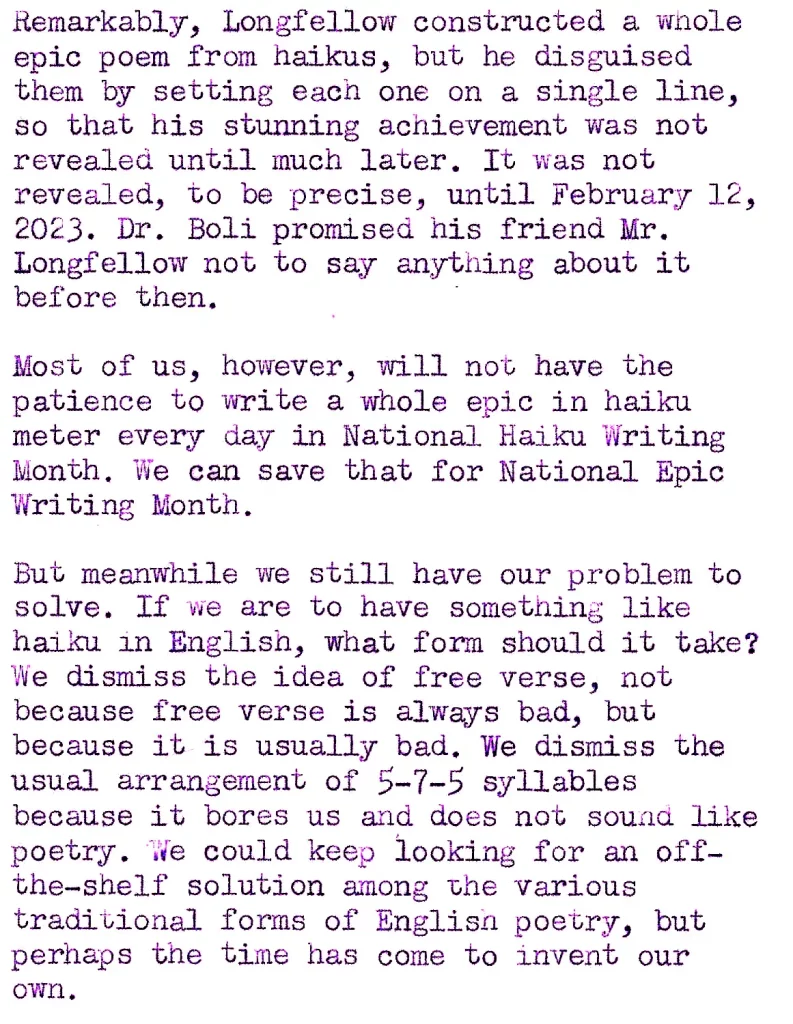

Transcribed below. The typewriter is a Royal Quiet De Luxe with Elite type and a purple ribbon.
We’ve tried several different kinds of verse common in English poetry, but so far we have not found one that seems to fit the delicate mood of traditional haiku. Couplets, either in pentameter or in tetrameter, seem more suitable for delivering a zinger than for observing the falling petal of a cherry blossom. Limericks remind us too much of Old Men of Moldavia and Young Ladies of Bute. Common Meter threatened to bring choirs of Methodists down on our heads.
We have by no means exhausted all the possibilities, even in the traditional haiku form. For example, “Belfry Bat” suggested, “Maybe we need more dactyls.” That might liven up our orthodox haiku:
Look at the blossoms
falling from branches above you.
Ain’t it a pity?
Obviously the lines are too short to get a good train of dactyls going, unless we consider the whole poem as a unit. Here, for example, is a haiku by Longfellow:
This is the forest
primeval. The murmuring
pines and the hemlocks
[Note: The typewritten text above divided the lines incorrectly. The division here is correct.]
Remarkably, Longfellow constructed a whole epic poem from haikus, but he disguised them by setting each one on a single line, so that his stunning achievement was not revealed until much later. It was not revealed, to be precise, until February 12, 2023. Dr. Boli promised his friend Mr. Longfellow not to say anything about it before then.
Most of us, however, will not have the patience to write a whole epic in haiku meter every day in National Haiku Writing Month. We can save that for National Epic Writing Month.
But meanwhile we still have our problem to solve. If we are to have something like haiku in English, what form should it take? We dismiss the idea of free verse, not because free verse is always bad, but because it is usually bad. We dismiss the usual arrangement of 5-7-5 syllables because it bores us and does not sound like poetry. We could keep looking for an off-the-shelf solution among the various traditional forms of English poetry, but perhaps the time has come to invent our own.